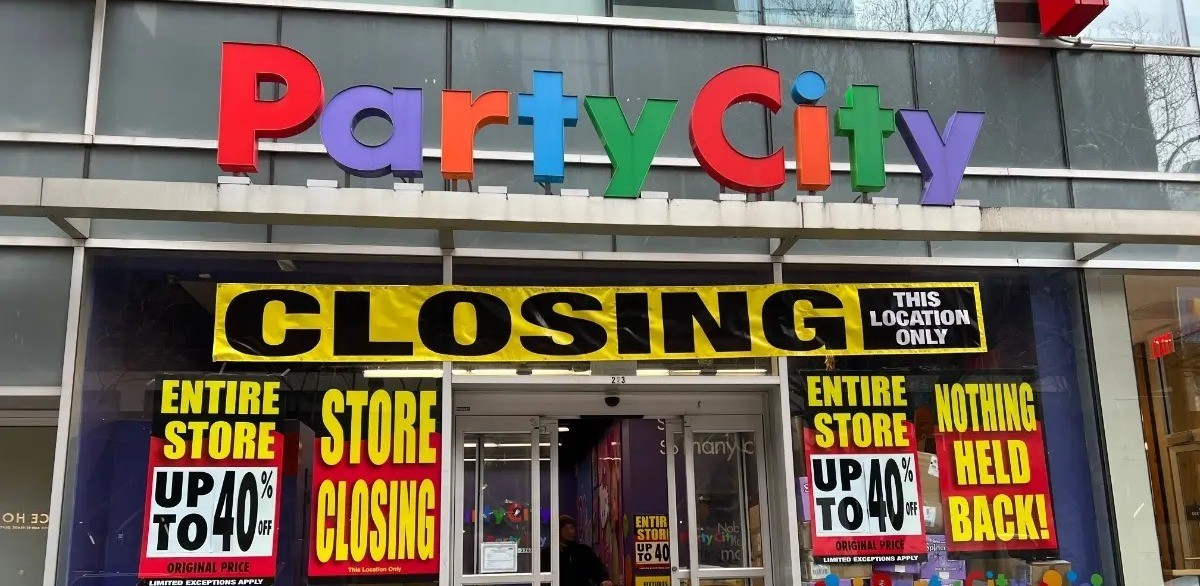J.C.Penney, an American department store chain has announced the permanent closure of 7 of its stores. These 7 stores will close on May 25, 2025. However, at present, this does not seem to have any significant impact on their retail network. Because JCPenney has 656 stores across the U.S. states and Puerto Rico and the revenue from the stores that have been announced to be closed was comparatively low and was continuously decreasing, due to which JCPenney has announced their closure. Currently, looking at the business of JCPenney, these stores have less than 1% share in its total business. Because apart from retail stores, JCPenney also has a wider customer base on e-commerce platforms.
However, JCPenney has also said in its official statement that at present it has no plans to reduce the number of other stores further. But this store closer decision has raising an alarm of the rapidly changing nature of the retail market and this small incident has given rise to a big debate whether the form of the traditional retail market is now going to change into an online retail market?
The closure of Westfield Annapolis Mall in Annapolis, Maryland was also announced. But later in a statement it was said that this store will remain open till 31 August 2025 and after that it has been said to continue after discussing with the landlord about a new long-term lease. JCPenney has closed its retail stores in these 7 locations.

What have JCPenney officials said about this step?
JCPenney has announced the closure of its retail stores and also mentioned the reasons for closing them. JCPenney has cited the expiry of the land lease agreements of these stores as the main reason for this. But these land lease agreements could have been extended further. But JCPenney has also accepted the continuously decreasing number of customers at these stores as the main reason for closing the stores.
JCPenney also does retail business through its online shopping platform and JCPenney has accepted that it is also working towards developing its online shopping platform further.

Reasons for JC Penney store closure
The reason for JC Penney's store closure is basically commercial and financially weak. The JC Penney retail store group, founded by James Cash Penney in 1902, also filed for bankruptcy in 2020. JC Penney was facing a massive economic crisis at that time. The biggest crisis among these was the global Corona epidemic, due to which retail stores were closed.
Simon Property Group and Brookfield Asset Management bought JC Penney for $800 million. Later Authentic Brands Group also took a stake in it. The command of JC Penney was given to the new CEO Mark Rosen. The new management started working afresh on a $1 billion turnaround plan to increase JCPenney's business.

For this, the new management started working towards strengthening JCPenney's retail market online. E-commerce platforms were developed to strengthen JCPenney's online presence.
JCPenny also started a loyalty program to encourage users of online platforms, under which attractive offers and schemes like cash back were started for the users. This also benefited. To reduce costs, JCPenney started a plan to close 175 stores that were running in loss or had low business.
J.P.Penney's stores were upgraded to provide a memorable shopping experience to customers. For this, new interior designing was done in all the stores.
JCPenney has closed 200 of its stores since 2020. The new management of JCPenny is continuously working in two directions. First, reducing business expenses, for which they are closing low-profit or loss-making stores and second, it is developing its online retail market. So that more reach can be made to the customers. Online e-commerce platforms are a lower-maintenance medium than traditional retail stores.
Retail Bloodbath, traditional retail market is shrinking.
This is not the first time JCPenney is taking the step of closing its stores, but 200 stores have been closed since 2020. Apart from this, various big retail store chain brands in the USA have announced the closure of more than 2500 of their retail stores in 2025.
Bed Bath & Beyond, Tuesday Morning and Party City in 2023, Big Lots in 2024 and Forever 21 have declared bankruptcy this year itself. Apart from this, big retail store brands like Container Store, Rue2, David Bridal, Sears Holdings and prominent toy retail store brand Toys "R" Us are also facing financial crisis.
Due to cost effectiveness and changing customer behavior, most retail brands are focusing on online shopping portals. Due to which they are working towards developing their online shopping platforms and making them more convenient.
E-Commerce gulping retail stores
When the rest of the market has recovered from the crisis of the Corona epidemic, the physical retail market is facing a crisis. The biggest reason for this is the low number of customers. Because while the Corona epidemic had put the rest of the business in crisis, it has emerged as a golden opportunity for e-commerce. During this time, there has been a lot of awareness about online shopping among the general customers and they are also finding it very convenient.
If we look at the data, e-commerce sales in the US registered a growth of 47% during the Corona epidemic in 2020. In 2019 it was $ 569.4 billion, while in 2020 this figure was $ 807.1 billion. Since then, e-commerce sales have been growing by more than 8% every year.
Despite many disadvantages, online shopping is now becoming popular. There are many reasons that are making e-commerce platforms more effective.
There is a limit to the range and variety of products at physical retail stores, while customers get unlimited products and variety on e-commerce platforms. Even for retail store brands, e-commerce platform is more convenient than any physical retail store, because the maintenance cost of e-commerce platform is much less than any retail store. Stock maintenance cost on any e-commerce platform is comparatively very low. very little manpower is required.
Therefore, now retail brands are also not hesitating to adopt e-commerce. But there is also a lot of disadvantages. Because through this, manufacturers of various products are making direct reach to customers. Due to which the utility of retail brands decreases. And developing an e-commerce platform is easier than developing a physical retail store chain. Due to which E-Commerce also becomes a highly competitive field here.


